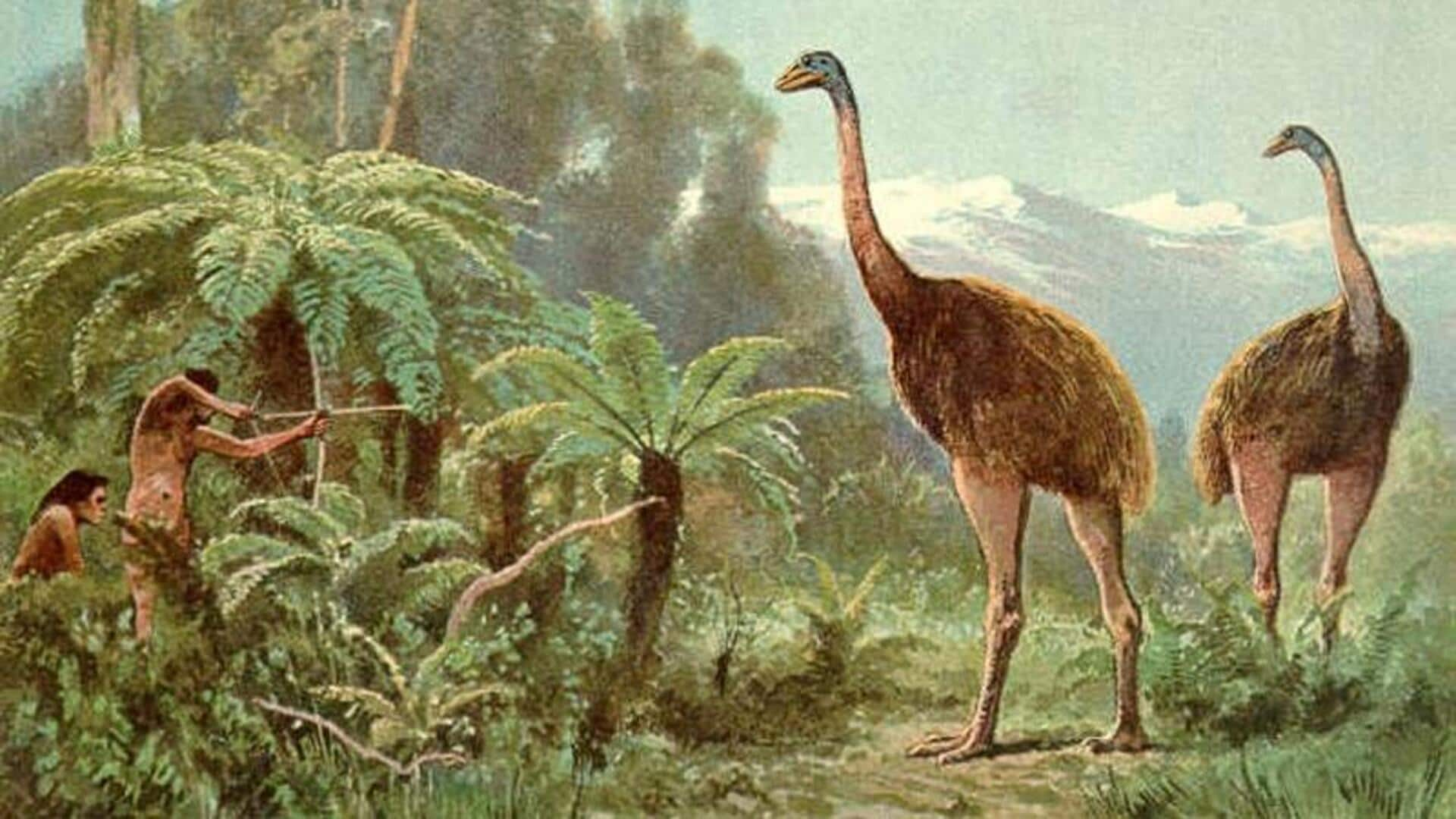
This extinct 12-feet-tall bird may soon roam among us
What's the story
Colossal Biosciences, the firm that resurrected the long-lost dire wolf, is now looking to bring back another extinct creature: the Moa. The Moa was a flightless bird that once roamed New Zealand but went extinct about 600 years ago due to hunting by humans. The giant bird stood up to 12 feet tall and weighed around 230kg.
Ecological impact
Moa's extinction affected New Zealand's ecosystem
The Moa was a herbivore, feeding on leaves, fruits, and fibrous materials from trees and shrubs. Its extinction had a major impact on the ecosystem of New Zealand. The giant bird was a cornerstone species, meaning its grazing helped shape the jungle flora where it lived. It also played an important role in seed dispersal for various plants it consumed.
Predator-prey relationship
Resurrection could restore ancient woodlands
The extinction of the Moa is also linked to that of the Haast's eagle, a predator that primarily hunted these giant birds. While resurrecting the Moa won't automatically bring back its predator, it could partially restore New Zealand's ancient woodlands. This highlights the intricate balance of ecosystems and how one species' extinction can impact others in its food chain.
De-extinction process
How Colossal plans to bring back the bird
Colossal Biosciences plans to use ancient DNA, cloning, as well as gene-editing technology to bring back the Moa. The company is working with Ngai Tahu Research Center, a group founded in 2011 for intellectual development and scientific studies by the Ngai Tahu tribe of the Indigenous Maori people. Ben Lamm, CEO of Colossal Biosciences, said this is "completely a Maori initiative."
Cultural importance
Revival of Moa could restore lost cultural narratives
Moa holds a special place in Maori culture. Ngai Tahu archeologist Kyle Davis, who is working on the de-extinction project, said that Moa is one of "those iconic species that feature in our tribal mythology, our storytelling." He added that these creatures are "very near and dear to us." This highlights how the revival of such species could also bring back lost cultural narratives.